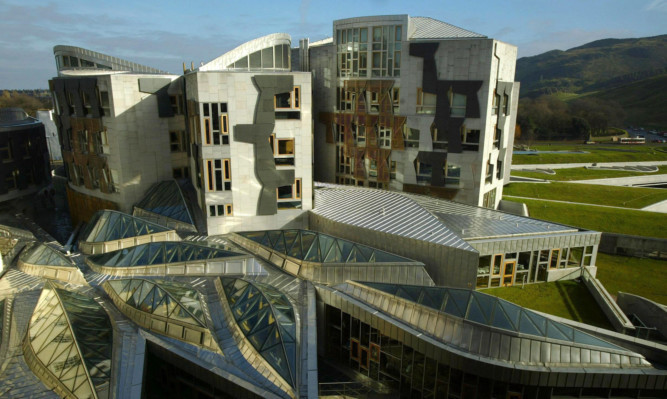A House of Lords committee has called for a halt to the Scotland Bill until key issues are addressed, including details of the funding package which will accompany it.
The Economic Affairs Committee has set out its concerns in a report on the legislation which hands a raft of new powers to Holyrood.
It identifies seven problems with the Bill, stating the future of the UK “could well be at risk” if they are not solved.
The legislation, which was passed by the House of Commons earlier this month, is due for second reading in the House of Lords on November 24.
The committee has said the Bill should not proceed to the committee stage – the first stage where amendments can be made – until the devolution fiscal framework is published.
This would include agreement on the funding of the Scottish budget and how it is adjusted once powers are devolved, the scrutiny of public revenues and spending, borrowing powers, fiscal rules and fiscal institutions.
A deal on funding is still being thrashed out between the UK and Scottish governments, with the latter threatening to block the Bill’s legislative consent at Holyrood unless a satisfactory agreement is reached.
Committee chairman Lord Hollick said: “The Scotland Bill has the potential to fundamentally change the UK and impact on us all both politically and economically.
“It is crucial that what is proposed is stable and sustainable. Parliament is being asked to pass the Bill before we are told full details about the fiscal arrangements that will underpin this new era of devolution. That cannot be right.
“We are calling on the progress of the Bill to be halted until the details are agreed and published. That would at least allow peers the opportunity that MPs were denied of scrutinising and amending this important legislation as informed participants.
“Our report today identifies some of the key issues the fiscal framework should clarify.”
The committee called for the Barnett Formula – the funding mechanism that determines how much cash Scotland receives from the Treasury – to be scrapped and replaced with “a needs-based funding formula for distributing funds to devolved administrations”.
It looked at how the Scottish block grant could be adjusted to account for Scotland’s new income tax powers but found it was impossible to recommend a preferred option due to the absence of the details of the fiscal framework.
It also warned that giving almost full control of income-tax powers could risk weakening the connection between the Scottish electorate and UK Government.
Further concerns were raised over the “no detriment” principle, which states there should be no detrimental impact as a result of UK Government or Scottish Government policy decisions post-devolution.
Such a principle is unworkable in practice and a recipe for continuing conflict, the committee said.
Elsewhere, additional borrowing powers should be agreed with a clear limit on Scottish Government debt and the UK Government watchdog the Office of Budget Responsibility should scrutinise the funding of devolved governments alongside the Scottish Fiscal Commission in Scotland.
